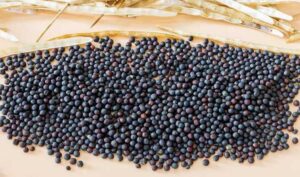
Rapeseed processing in Ukraine in 2024/2025 MY amounted to 0.5 million tons, or 14% of rapeseed production, according to the Ukroliyaprom association.
“It was not possible to use rapeseed for processing, as in the previous marketing year (when a record amount of over 1.0 million tons was processed), due to its massive export (almost 90% of its production). 3.1 million tons of rapeseed were exported, or over 86% of its production. Only over 0.5 million tons, or 14% of rapeseed production, was processed,” the industry association said.
Ukroliyaprom added that rapeseed oil exports in the 2024/2025 season amounted to 210,400 tons, worth $194 million, of which 153,500 tons (worth $144.1 million) were shipped to EU countries.
The top 10 countries purchasing Ukrainian rapeseed oil included China (48.3 thousand tons), Poland (46.1 thousand tons), Belgium (26.5 thousand tons), Lithuania (23.1 thousand tons), the Netherlands (15.2 thousand tons), Spain (13 thousand tons), Italy (9 thousand tons), Bulgaria (8.2 thousand tons), Germany (4.3 thousand tons), and Latvia (3.6 thousand tons).
Exports of rapeseed meal in 2024/2025 MY amounted to 218.5 thousand tons worth $53.9 million at an average price of $246.7 per ton. At the same time, 86.9% of rapeseed meal was supplied to EU countries, 9.9% was purchased by Israel, and 3.2% by Turkey.
The main importers of rapeseed meal were Spain (95.7 thousand tons), Hungary (39.7 thousand tons), Lithuania (21.4 thousand tons), France (15 thousand tons), Italy (5.9 thousand tons), Poland (5.5 thousand tons), Israel (21.8 thousand tons), and Turkey (6.9 thousand tons).
The processing season for rapeseed harvested in 2025 began in July of this year. In July-August, only about 60 thousand tons of rapeseed were processed into oil, which allowed for the production and export of 25.0 thousand tons of rapeseed oil.
At the same time, in September 2025, under the conditions of export duties on rapeseed, its processing at domestic enterprises increased to a record monthly volume of 250 thousand tons. According to Ukroliyaprom’s estimates, production reached 120,000 tons, of which 108,800 tons were exported for $121.9 million. This represents a 2.8- and 3.3-fold increase over the same period last year. The cost of one ton of exported oil increased in the current marketing year compared to the previous one to $1,120.4 per ton, or by $171.4 per ton.
The main consumers of Ukrainian rapeseed oil in September 2025 were EU countries, which imported 92 thousand tons from Ukraine, or 84.5% of the total exports of this product from Ukraine.
Among EU countries, the largest importers were the Netherlands, which purchased 29,000 tons of rapeseed oil, accounting for 27% of total exports, Belgium – 15,500 tons (14.2%), Spain – 14, 4 thousand tons (13.2%), and Poland – 13.5 thousand tons (12.4%).
16.8 thousand tons (15.5%) were exported to other countries, in particular, 13.9 thousand tons (15.5%) were exported to Singapore.
Ukroliyaprom reminded that on September 4, 2025, amendments to the law “On Export Duty Rates on Seeds of Certain Oil Crops” came into force, approving export duty rates of 10% of the customs value of goods for soybeans (UKTZED code 1201) and rapeseed (UKTZED code 1205). The association expressed hope for further positive results in the processing of rapeseed and soybeans, provided that the conditions for their processing remain in place.
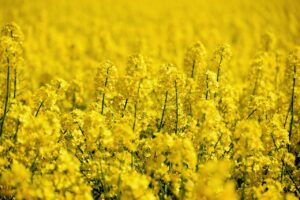
In September 2025, Ukraine processed a record monthly volume of rapeseed, exceeding 250,000 tons. For the first time in a long time, domestic processing exceeded monthly exports of this crop by 236,000 tons, according to the analytical industry agency APK-Inform.
“At the same time, in late September and early October, trade in this sector slowed down due to the expected decision on the mechanism for exempting soybean and rapeseed producers from the 10% export duty. Against this backdrop, the supply of rapeseed decreased,” analysts noted.
Experts added that a number of processors reported low rapeseed supplies to enterprises and the likely completion of its processing and transition to sunflower, stocks of which were accumulated quite well in September.
Nevertheless, plants raised their demand prices for rapeseed in an attempt to attract more offers, to UAH 23,000-23,500/ton CPT and above for real volumes and large batches, according to APK-Inform.
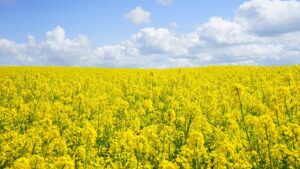
A mechanism for confirming exporters as commodity producers, which will allow them to avoid paying the recently introduced 10% duty on exports of soybeans and rapeseed, should be in place by the end of next week, said Deputy Minister of Economy, Environment, and Agriculture of Ukraine Denys Bashlyk.
“It will be as convenient as possible, the software is already 90% ready. The Cabinet of Ministers will make a decision next week,” he said at the Forbes Agro conference in Kyiv on Friday.
Bashlyk noted that there are currently situations where producers export and are forced to pay duties because there is no such confirmation mechanism.
According to him, the confirmation mechanism is planned to be implemented through the state agricultural register so that it does not take too much time, does not require “a million references” and the need to confirm each batch.
As for the duties already paid by commodity producers, the government is preparing amendments to the law on the state budget for 2025, which will allow the return of duties already paid, the deputy minister said.
In general, he noted that the Ministry of Economy is against the abolition of the 10% duty on exports of soybeans and rapeseed.
“We understand the risks that farmers may face, but it should be noted that there is another side to this story — the creation of a separate fund to which the paid duties will be transferred. And so, should the abolition of these so-called soybean amendments be on the agenda today? No, it should not,” Bashlyk said.
Farmers at the Forbes Agro conference criticized the introduction of this duty because, in their opinion, processors at the beginning of the war, due to logistics problems, received high profits at the expense of agricultural producers, and now processing does not require such privileges and should pay the market price for raw materials, competing with importers. According to the speakers, these duties will result in a reduction in rapeseed and soybean crops and a deterioration in crop rotation.
The head of Ukraine’s largest oil producer, Kernel, Yevgen Osipov, canceled his planned interview at the conference, and the founding editor of Forbes Ukraine, Volodymyr Fedorin, who was supposed to conduct the interview, said that Osipov did not like the publication’s article criticizing the duty.
As reported, Law No. 13157, signed by the president on September 2, stipulates that agricultural producers and cooperatives that export their own products will be exempt from paying duties. However, due to the lack of clear rules for documentary confirmation of the origin of goods, the mechanism does not actually work, and the export of oilseeds has been largely blocked.
A number of agricultural associations, including the All-Ukrainian Agrarian Council (VAR), the Ukrainian Agribusiness Club (UAC), the Ukrainian Grain Association (UGA), the Ukrainian Agrarian Confederation, as well as the European Business Association and the American Chamber of Commerce, have appealed to the Cabinet of Ministers and the Verkhovna Rada to repeal the law establishing a 10% duty on exports of soybeans and rapeseed as soon as possible.
On September 19, MP Yaroslav Zheleznyak (Voice faction) registered a corresponding bill No. 14055 on the repeal of the “soybean and rapeseed amendments.”
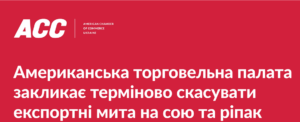
International business, united by the American Chamber of Commerce in Ukraine, emphasizes the need to urgently cancel export duties on soybeans and rapeseed.
They were introduced on September 4, 2025 in accordance with the Law of Ukraine #4536-IX “On Amendments to the Tax Code of Ukraine and Other Legislative Acts of Ukraine in connection with the Adoption of the Law of Ukraine ”On Integrated Industrial Pollution Prevention and Control“ and in order to improve certain provisions of tax legislation” (Law #4536-IX).
The amendment on the introduction of export duties on soybeans and rapeseed was included in Law No. 4536-IX in violation of the principles of legislative technique, the Rules of Procedure of the Verkhovna Rada of Ukraine and the principle of stability of tax legislation. Such changes contradict Ukraine’s European integration course and Article 31 of the EU-Ukraine Association Agreement, worsen the investment climate, pose risks to the rule of law, and lead to losses for agricultural producers due to falling purchase prices and reduced acreage.
Since September 4, 2025, Ukrainian Black Sea ports have been blocked by ships and port railways by railcars carrying rapeseed and soybeans due to the unresolved procedure and criteria for applying the zero duty rate for agricultural producers. Thus, all exporters, including agricultural producers, cannot export their goods and suffer losses due to fines for demurrage of ships and other vehicles, excessive storage of grain in ports, extended insurance coverage, and failure to fulfill contracts with foreign buyers. Expensive goods are stuck in ports and are at risk from regular shelling of ports, as are the crews of foreign vessels whose customs clearance is blocked. Foreign exchange earnings (up to USD 2 billion) for rapeseed and soybean seeds in 2025 have been effectively disrupted. Currently, at least nine vessels are in such a standstill, and according to preliminary estimates, the estimated losses for the business will be between USD 5 and 10 million per month.
In view of the above and the current critical situation, the American Chamber of Commerce calls on the Government to
AMERICAN CHAMBER OF COMMERCE, DUTIES, RAPESEED, SOYBEANS, UKRAINE
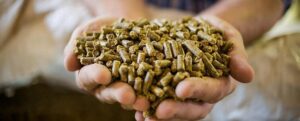
Ukrainian sunflower meal lost ground to Argentine sunflower meal on the European market for the first time in a long time, while rapeseed meal supplies reached a record low for five seasons, according to the information and analytical agency APK-Inform.
The agency cited data from the European Commission, according to which in July-August (2025-2026 MY for the EU) the European Union imported 118,000 tons of Argentine sunflower meal, accounting for 49% of total imports of this product, while the share of Ukrainian meal was 40%, or 96,000 tons.
According to Ukrainian statistics, in July, exports of Ukrainian sunflower meal to the EU halved, amounting to just over 50 thousand tons, and in August, according to preliminary estimates by APK-Inform, the smallest volume of this product since October 2021 was exported to the EU—only about 20-25 thousand tons.
Analysts recalled that in the 2024/25 season, Ukrainian sunflower meal accounted for 62% of total imports of this product, while Argentine sunflower meal accounted for 29%.
“The reduction in supplies in July-August this year is due to a decrease in sunflower processing by Ukrainian factories in the summer and, accordingly, a lower supply of meal. At the same time, the seasonally high supply of rapeseed meal on the European market became an additional limiting factor,” the experts explained.
Currently, analysts emphasized, Ukrainian rapeseed meal supplies to the EU are at their lowest level in more than five seasons (excluding 22/23 MY), which is due to the shift in rapeseed harvesting dates in Ukraine, low sales of oilseeds by farmers, and very low processing in July.
According to the European Commission, in the first two months of the 2025/26 season, the EU purchased only 1.6 thousand tons of rapeseed meal from Ukraine, or 1.3% of total imports. Currently, Canadian rapeseed meal dominates EU imports with a share of 84%. Last season, during the same period, the EU imported mainly Ukrainian products, which accounted for 82% of imports, according to APK-Inform.
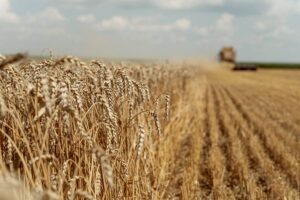
Astarta, Ukraine’s largest sugar producer, has completed its early grain and oilseed harvest, yielding 237,000 tons of wheat (-9% y/y) and 31,000 tons of rapeseed (-23% y/y), according to the press service of the agricultural holding.
Astarta noted that wheat yields were 5.2 tons/ha (-3% y/y) and rapeseed yields were 2.7 tons/ha (-20% y/y).
“The current season was characterized by a number of climatic challenges: a lack of precipitation over most of the territory, spring frosts, local hailstorms, and prolonged rains in the western regions, which affected the pace of crop ripening and harvesting. At the same time, thanks to effective planning, the prompt deployment of equipment, and the coordinated work of Astarta’s agronomic and production teams, the company ensured timely and high-quality harvesting,” the agricultural holding said.
The highest results were achieved by agricultural companies in western Ukraine: Zhitnytsia Podillya with a wheat yield of 7.4 t/ha and Volochysk-Agro with a rapeseed yield of 3.1 t/ha. Astarta has now begun harvesting late crops.
At the same time, Astarta’s farmers are sowing winter crops for the 2026 harvest. The planned areas are 44,000 ha for winter wheat (-3% y/y) and 16,000 ha for winter rapeseed (+45% y/y).
According to the results of the first half of 2025, revenue in the segment amounted to EUR61 million (-38% y/y) amid a decline in sales volumes compared to last year’s harvest. Exports accounted for 83% of the segment’s revenue (compared to 93% in the first half of 2024),” the agricultural holding summarized.
Astarta is a vertically integrated agro-industrial holding operating in eight regions of Ukraine and the largest sugar producer in Ukraine. It comprises six sugar factories, agricultural enterprises with a land bank of 220,000 hectares, dairy farms with 22,000 head of cattle, an oil extraction plant in Hlobyn (Poltava region), seven elevators, and a biogas complex.
In 2024, Astarta increased its net profit by 34.5% to EUR83.25 million, while its consolidated revenue decreased by 1.1% to EUR612.15 million.
In the first quarter of this year, the agricultural holding’s revenue fell by 24.9% to EUR124.58 million, while net profit fell by 28.8% to EUR6.42 million.
On June 12 this year, the shareholders’ meeting approved the payment of dividends for 2024 in the amount of EUR0.5 per share for a total of EUR12.5 million, which corresponds to the figures for the previous two years.